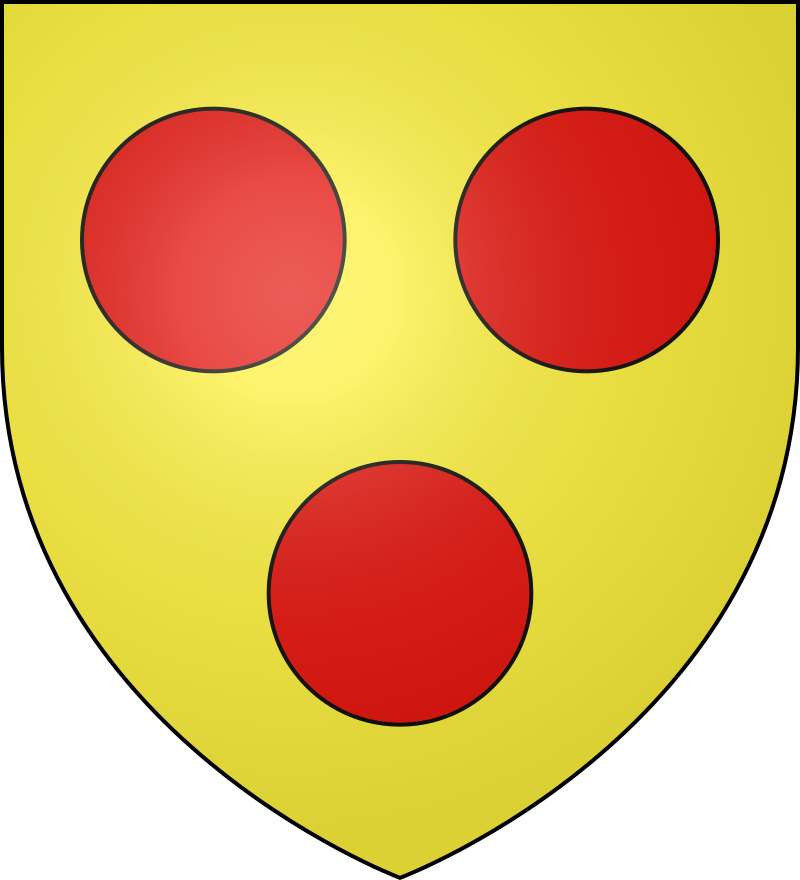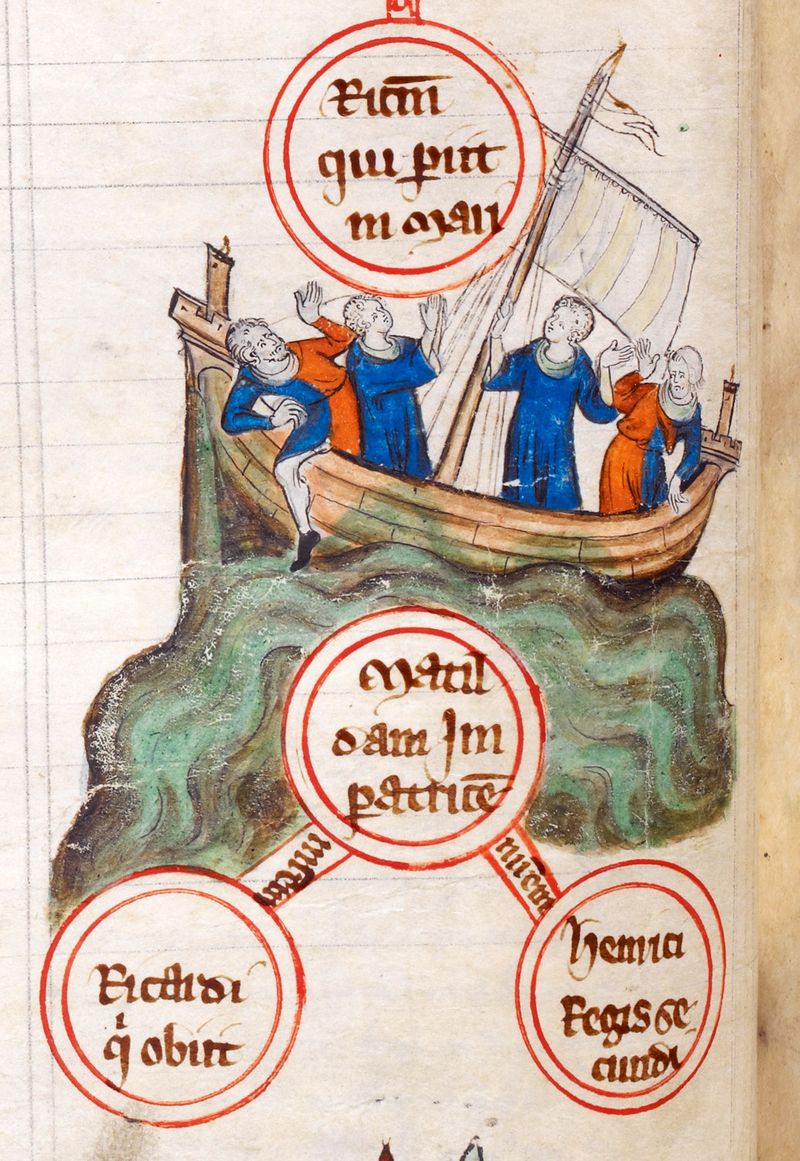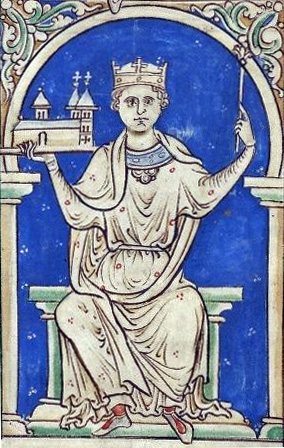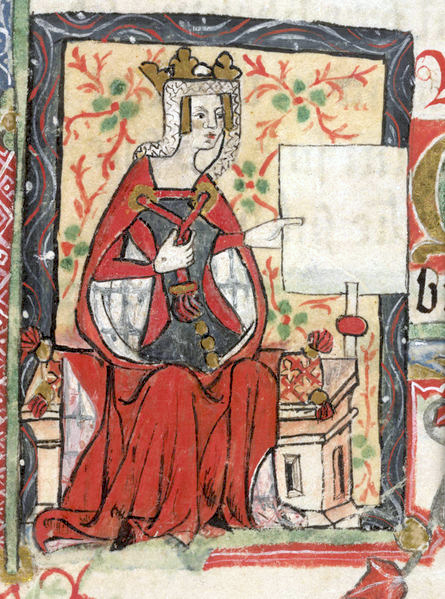by Susan Flantzer
© Unofficial Royalty 2022

Eustace’s coat of arms as Count of Boulogne; Credit – Wikipedia
Born circa 1129, Eustace (of Blois) IV, Count of Boulogne was the second but the eldest surviving of the five children and the second but the eldest surviving of the three sons of Stephen I, King of England (born Stephen of Blois) and Matilda I, Countess of Boulogne in her own right. Boulogne was a county within the Kingdom of France from 896 – 1501, centered on the city of Boulogne-sur-Mer, a coastal city in Northern France.
Eustace’s paternal grandparents were Stephen II, Count of Blois and Adela of Normandy and England, a daughter of William I, King of England (the Conqueror). His maternal grandparents were Eustace III, Count of Boulogne and Mary of Scotland, daughter of King Malcolm III of Scotland and Saint Margaret of Scotland.
Eustace had four siblings. After the death of his elder brother Baldwin in 1135, Eustace became the heir of his father’s and mother’s lands.
- Baldwin of Blois (circa 1126 – 1135), died in childhood
- Matilda of Blois (circa 1133 – circa 1137), died in childhood
- Marie of Blois, Countess of Boulogne (circa 1136 – 1182) married Matthew of Alsace, had two daughters
- William of Blois, Count of Boulogne (circa 1137 – 1159) married Isabel de Warenne, 4th Countess of Surrey, no children

The sinking of the White Ship; Credit – Wikipedia
In 1120, a terrible tragedy caused a succession crisis in England. The White Ship, carrying King Henry I of England’s only legitimate son William Ætheling, sank as it left France to sail to England, and William Ætheling was among the estimated 300 passengers who drowned. Empress Matilda was then King Henry I’s only legitimate child. On Christmas Day in 1126, Henry I had his barons swear to recognize Empress Matilda and any future legitimate heirs she might have as his successors.
Stephen and his wife Matilda of Boulogne stayed close to his maternal uncle King Henry I and spent much time in England realizing that Stephen was very close to the throne. Stephen’s mother Adela of Normandy and England was the daughter of William I, King of England (the Conqueror). Henry I’s daughter Empress Matilda had left England as a child to marry Holy Roman Emperor Heinrich V. The marriage was childless and Holy Roman Emperor Heinrich V died in 1125. After her husband’s death, Empress Matilda went to the royal court in the Duchy of Normandy (Kings of England were also Dukes of Normandy). Eventually, King Henry I made arrangements for his daughter to marry Geoffrey V, Count of Anjou in 1128. Empress Matilda and Geoffrey did not get along and their marriage was stormy with frequent, long separations but they did produce three sons, including Henry FitzEmpress, the future Henry II, King of England.

Eustace’s father King Stephen of England; Credit – Wikipedia
On December 1, 1135, King Henry I of England died. His nephew Stephen quickly crossed over the English Channel from the County of Boulogne, now in France, to England, accompanied by his military household. With the help of his brother Henry of Blois, Bishop of Winchester, Stephen seized power in England and was crowned King of England on December 22, 1135. Eustace was now also the heir apparent to the throne of the Kingdom of England and the Duchy of Normandy, However, Empress Matilda did not give up her claim to England and Normandy, leading to the long civil war known as The Anarchy between 1135 and 1153.

Empress Matilda; Credit – Wikipedia
In 1137, as heir apparent to the English throne, Eustace did homage for the Duchy of Normandy to King Louis VII of France, whose sister, Constance of France, he subsequently married in 1140. Eustance and Constance had no children. However, Geoffrey of Anjou, Empress Matilda’s husband, began a systematic conquest of the Duchy of Normandy. By 1143, Geoffrey secured all of Normandy west and south of the Seine River and assumed the title of Duke of Normandy. Geoffrey held the duchy until 1149 when he and Empress Matilda ceded it to their son Henry FitzEmpress
Eustace was knighted in 1147. By this time he was sixteen or seventeen years old and he began to take a more active part in the civil war. In 1151, Eustace and King Louis VII of France launched an invasion of the Duchy of Normandy. However, they were defeated by the troops of Henry FitzEmpress.
At a council held in London on April 6, 1152, Stephen asked the barons to recognize Eustace as their next king and to pay him homage. He wanted to follow the French practice of ensuring the succession by declaring his heir Eustace the junior king. The barons refused. By the early 1150s, after years of civil war, most barons and church leaders wanted long-term peace. Theobald of Bec, Archbishop of Canterbury refused to grant Stephen’s request to crown Eustace and Pope Eugene III refused to recognize Eustace as Stephen’s successor. However, Eustace’s mother Matilda I, Countess of Boulogne died of a fever on May 3, 1152, and her eldest son succeeded her as Eustace IV, Count of Boulogne.
Finally, the armies of Henry FitzEmpress and King Stephen of England met at Wallingford in Oxfordshire, England. Pressured by the barons, Stephen called a ceasefire and agreed to a truce, over the objections of his son Eustace. Eustace flew into a rage and plundered church lands of the Abbey of Bury St Edmunds in Suffolk, England.
On August 17, 1153, Eustace, aged about twenty-three, died suddenly in Bury St. Edmunds. Various chroniclers of the time attribute Eustace’s death to the wrath of God for plundering church lands, a fever, a fit of madness, or poisoning. Eustace was buried in Faversham Abbey in Faversham, Kent, England, founded by his parents who were also buried there. All three tombs were lost when Faversham Abbey was demolished during the Dissolution of the Monasteries during the reign of King Henry VIII. Their remains were reportedly thrown into the nearby Faversham Creek. Their empty tombs were unearthed in 1964 near what had been the center of the choir. At St. Mary of Charity Church, the parish church in Faversham, there is a tomb where it is said that the remains of King Stephen, his wife Matilda of Boulogne, and his son Eustace were reinterred after the destruction of Faversham Abbey.

The supposed tomb of King Stephen, his wife Matilda, and their son Eustace; Credit – www.findagrave.com
Shortly after Eustace’s death, King Stephen and Henry FitzEmpress reached a formal agreement known as the Treaty of Wallingford. The treaty allowed Stephen to keep the throne until his death but forced him to recognize Empress Matilda’s son Henry FitzEmpress, as his heir. King Stephen survived for a little more than a year after the death of Eustace, dying apparently of appendicitis at Dover Castle on October 25, 1154, and a line of fourteen Plantagenet kings who ruled England until 1485 started, with Henry FitzEmpress, now King Henry II of England. Ironically, on August 17, 1153, the day of Eustace’s death, the first child of Henry FitzEmpress, the future King Henry II, and his wife Eleanor of Aquitaine was born. The child, William IX, Count of Poitiers, survived for only two years, but he was followed by seven siblings, two of whom became Kings of England, King Richard I (the Lionheart) and King John.
Sharon Kay Penman’s excellent historical fiction novel When Christ and His Saints Slept deals with The Anarchy and most of the historical figures mentioned here are characters.
This article is the intellectual property of Unofficial Royalty and is NOT TO BE COPIED, EDITED, OR POSTED IN ANY FORM ON ANOTHER WEBSITE under any circumstances. It is permissible to use a link that directs to Unofficial Royalty.
Works Cited
- En.wikipedia.org. 2022. Eustace IV, Count of Boulogne – Wikipedia. [online] Available at: <https://en.wikipedia.org/wiki/Eustace_IV,_Count_of_Boulogne> [Accessed 14 July 2022].
- Flantzer, Susan, 2016. King Stephen of England. [online] Unofficial Royalty. Available at: <https://www.unofficialroyalty.com/king-stephen-of-england/> [Accessed 14 July 2022].
- Flantzer, Susan, 2014. Matilda of Boulogne, Queen of England. [online] Unofficial Royalty. Available at: <https://www.unofficialroyalty.com/may-3-1152-death-of-matilda-of-boulogne-wife-of-king-stephen-of-england/> [Accessed 14 July 2022].
- Flantzer, Susan, 2015. The Sinking of the White Ship and How It Affected the English Succession. [online] Unofficial Royalty. Available at: <https://www.unofficialroyalty.com/november-25-1120-the-sinking-of-the-white-ship-and-how-it-affected-the-english-succession/> [Accessed 14 July 2022].
- Fr.wikipedia.org. 2022. Eustache IV de Boulogne — Wikipédia. [online] Available at: <https://fr.wikipedia.org/wiki/Eustache_IV_de_Boulogne> [Accessed 14 July 2022].
- Williamson, David, 1996. Brewer’s British Royalty. London: Cassell.
